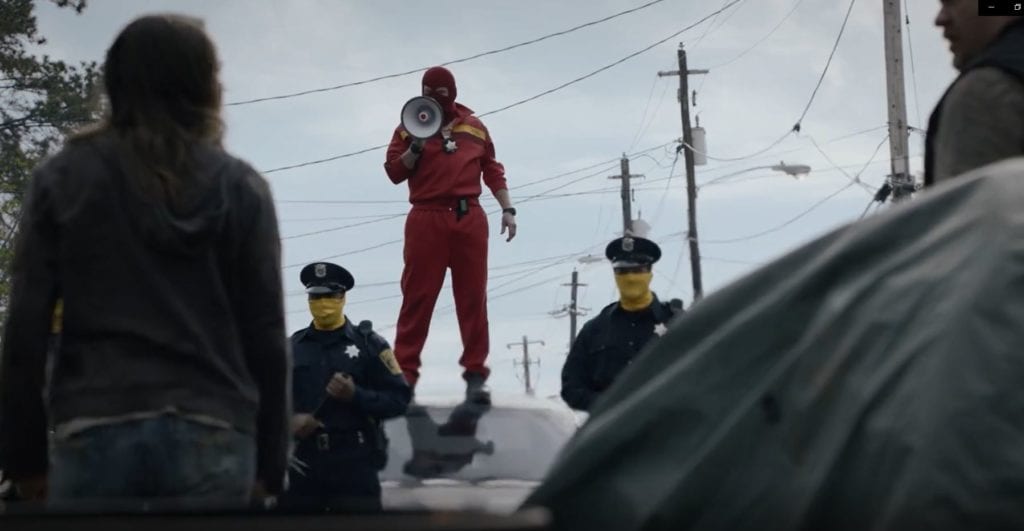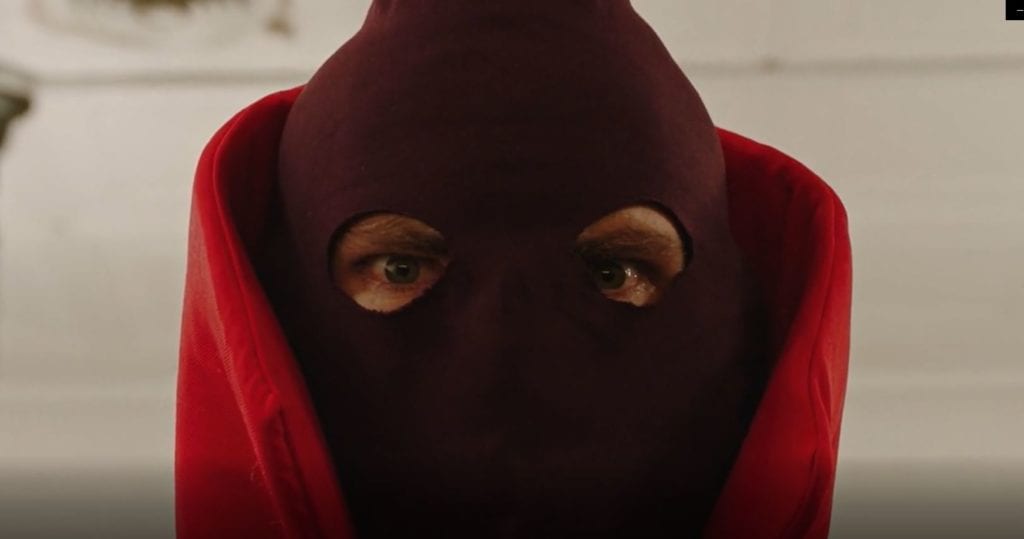Here we are again, back one week after Watchmen’s debut on HBO. A week filled with hot takes about racism, Rorschach, and whether Watchmen should be political. The first episode very much focused on the conflict of racism, with the white supremacist 7th Cavalry launching attacks on black cops and a cold opening featuring an eye-opening informative experience covering the Tulsa Massacre of 1921.
This week most certainly has a focus on race (complete with another flashback), but the story also opens up a bit and provides the kind of subtlety suggested last week. This episode also feels like classic Watchmen and Damon Lindelof mixed together into one giant scream of excited, confused, questioning profanity.
So yeah, I enjoyed it. And based on the initial reactions I’ve seen, so have a lot of people questioning Watchmen after the first episode.

While Watchmen certainly continues its focus on the racial divide of Tulsa, this week’s episode muddies the waters of right and wrong quite a bit. After Judd’s death to end the previous episode, the Tulsa police focus heavily on retribution. Retribution immediately recognizable to any American, as the police go to Nixonville, a poor, white part of the city, and begin smashing heads without care for innocence. It happens early in the episode and very much paints a picture suggested last week.
Namely, that authoritarianism is a bad thing no matter who is in charge.
What makes this vengeful attack all the worse is how Angela has Will, the old man waiting beside Judd’s body, in custody and admitting to killing him. She has a suspect, as hard as it may be to believe, but goes along for this raid out of her own desire for vengeance, and not just for what happened to her captain. This episode also includes a brief flashback to the White Night, where the 7th Cavalry attacked the entirety of the Tulsa police force in a coordinated incident leading to the masked officers we see presently.
We’re left again with the same relevant question so effectively introduced in the initial episode. To what lengths do we justify this type of martial law? How much power should we hand over to the authorities of the world? At what point do their methods stop being effective and just make the situation worse? At what point do the Tulsa police just radicalize the people of Nixonville further, which just creates more 7th Cavalry members, creating more attacks, creating more angry police, and on and on until we have full-fledged race war beyond repair?
Watchmen paints an even harsher picture than the first episode did regarding the divide plaguing this society. It’s a divide obviously relevant to the world today. We see ideas that sound right, or at least just. The reparations paid to victims of racial violence in America and their relatives are a discussion had today. Television programs have long content warnings for the many possible triggers contained within.
However, it’s all a mask, a presentation hiding what’s actually happening. It’s almost like an ineffective forcing of values onto the world without the work to make the world believe it. Think of how people today react to discussions of misogyny and racism. Think about how immediately divisive talks about inclusivity can be. Watchmen seems to be presenting a world where inclusivity and social values were forced on a society that refused to accept it.
The result is a deep divide only growing worse. The same way Alan Moore’s graphic novel presented a warped vision of 80s America while it happened, Lindelof’s version is doing the same with society today.
With the reveal of the KKK robes in Judd’s closet, we now have even deeper questions about Tulsa and the police force. It did immediately stick out to me how he was the only law enforcement without a mask. I could have written it off as him simply being safer as the captain, but maybe not. Was he involved with the Cavalry? Was he involved with the White Night? Do the robes mean something else?
I guess these questions have to get in line behind the many other, weirder questions this episode raised. If people were upset that the first episode didn’t feel as overtly Watchmen, then this one should have helped.
I absolutely loved the many references and direct ties to the novel in this episode. The newspaper stand, the play, the American Hero Story show that directly rifted on Zack Snyder, the goggles that looked like Nite Owl’s… it was all glorious. I’m curious to see how American Hero Story continues to be used. Will it be Watchmen’s version of Tales of the Black Freighter? Is this Lindelof warping the history of the Watchmen universe the same way Moore warped American history? Maybe a bit of both?
Maybe the first episode didn’t do enough to directly draw this show to the Watchmen novel, but this episode most certainly did.
And with it, it raised some huge questions about just what the hell is going on with Adrian Veidt. Or is that Adrian Veidt? Some people don’t think so. I don’t think we’re supposed to know for sure. It’s all one big question mark completely disconnected with everything else right now.
Whether that’s Veidt or not, there’s clearly something crazy going on in this castle with its clones/robots/both. We have tomatoes growing on trees, the much-awaited blue Dr. Manhattan penis, and a play that raises questions as to why it even exists. What is the game here? How does this matter to the events in Tulsa? Is he somehow engineering the conflict in Tulsa?
There are theories out there about the possibility of Veidt creating a race conflict that he can then solve somehow, the way he temporarily did with the squid in the graphic novel, to bring two disparate sides on the verge of world war to an understanding. Where the graphic novel used Cold War tensions, Lindelof is instead using racial tensions at the center of American society today. I think this might be a bit too similar to Moore’s tale for my tastes, but I’m not cold to the idea.
Or maybe Veidt is trying to recreate the experiment that created Manhattan?

Honestly, who knows. The episode ended with an old man being abducted by a flying ship that may or may not have been meant to suggest aliens. This episode was really the best of Watchmen and Lindelof mixed into one glorious bit of mind-melting excellence. My only real complaint remains the inaccessibility for anyone who hasn’t read the graphic novel, or at least seen the movie. I can just imagine the amount of confusion for that audience, considering how confused I am despite reading it.
Whatever the case, this episode was a real treat. Watchmen continues to look like the kind of socially relevant mind-warper that you’d expect from the man making it and the name it bears. These first two weeks have set up some type of larger conspiracy we can’t see, and the FBI hasn’t even arrived yet. I can’t wait to see what happens when they do, and what comes of their involvement.
Probably something just as confusing.

